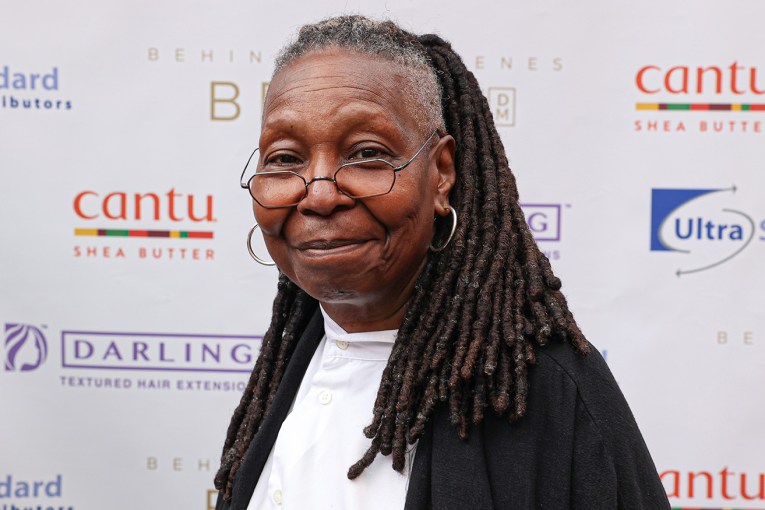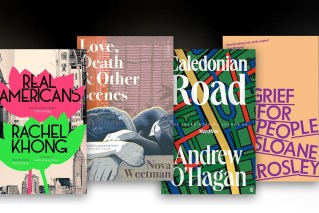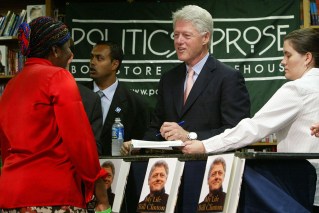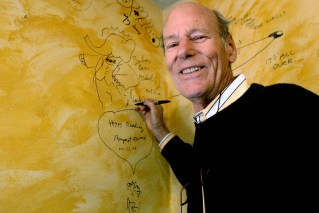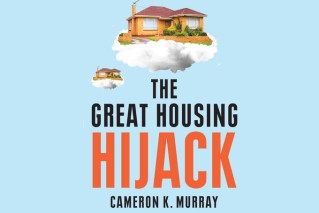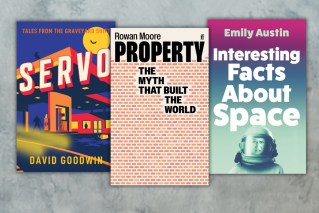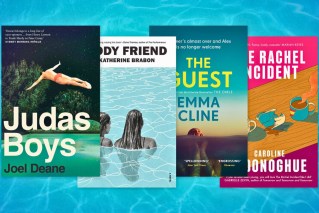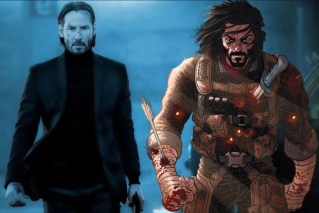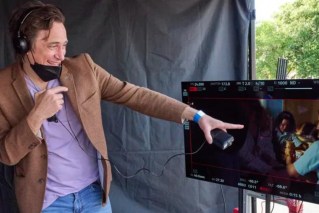Coronavirus reading list: The books Aussie authors have by their beds

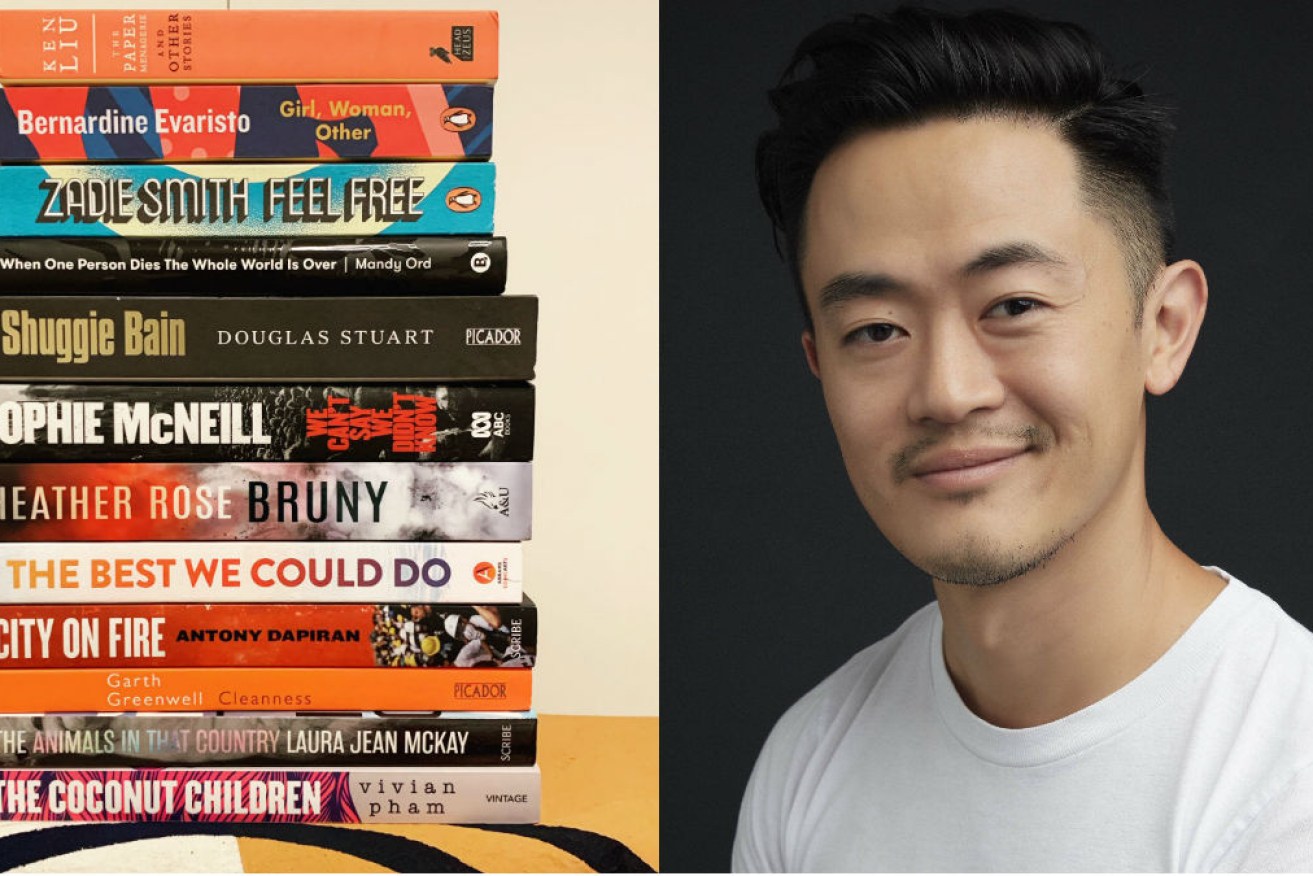
Benjamin Law and the books he's reading to get through the pandemic shutdown. Photo: Twitter/Daniel Francisco Robles
Benjamin Law should be on top of the world. The best-selling author of memoir The Family Law, adapted into the equally successful SBS show, recently launched his debut play Torch the Place at the Melbourne Theatre Company. A regular host on the writers’ festival circuit, he was gearing up for his busiest time of year.
And then COVID-19 came crashing into Australia. Torch the Place closed early and the Sydney Writer’s Festival cancelled. Across the country, countless literary and other arts events followed suit as we were encouraged to socially distance or isolate to stop the spread of the pandemic.
As organisers scrambled to adjust to the new normal, with Victoria’s regional Yarra Valley Writers Festival announcing it would switch to pay-per-view live streams, Law fell back on what he knows best: books.
“Reading is a part of my daily habit,” he tells The New Daily.
“You know, I’m not someone who is good at meditation, for instance. So reading is my version of that. It helps me focus. It takes me somewhere else, which is very necessary when you’re in self-isolation, social distancing, or for the poor people in actual quarantine.”
As such, he took to Instagram to share his stack of must-reads in a time of crisis and encourage fellow Australians to buy locally, with many Aussie indie stores delivering to their patch for free or slipping puchases intoi the mail, including Readings in Melbourne, the Avid Reader in Brisbane and the Bookshop Darlinghurst in Sydney.
“I think a lot of us will be reading and taking solace in being able to do something we don’t usually get the time to,” Law said.
He noted that everyone from authors to publishers to retailers are impacted by the, “hundreds of thousands, if not millions of dollars that have been wiped out from the writers’ festivals industry”.
“It’s devastating.”
Law’s top tips to survive this shutdown?
“I’m reading Shuggie Bain by Scottish writer and debut novelist Douglas Stuart. He published a short story Found Wanting in The New Yorker that completely knocked the wind out of me. I’m about a quarter of the way through the novel and it’s just brilliant.”
Noting he’s always behind on reading prize-winning books, next up is Booker Prize co-winner Bernardine Evaristo’s Girl, Woman, Other.
“I have not encountered a single person who read that book who hasn’t loved it.”
He’s also eyeing Garth Greenwell’s Cleanness as well as a couple of Aussie picks in good friend Heather Rose’s Bruny and Vivian Pham’s The Coconut Children.
“I’m on the board of Story Factory, which is a creative writing and literacy not-for-profit in Parramatta, and Vivian was one of our one of our students who signed up for the novella-writing workshop,” Law said.
“By the time she finished, she’d started a bidding war and now has a book out, which I can’t wait to read, and she’s only 19.”
Inspired by Law’s stack, we asked a hypothetical library-full of prominent Australian authors what books they’d add to his pile. Here are their answers.
Charlotte Wood, author of The Natural Way of Things, The Weekend
First up, my new favourite writer Joan Silber’s novel Improvement, a thrilling discovery. Then I’m into Tara June Winch’s The Yield, which I’ve been dying to get to for some time. Right now it’s Eat Like The Animals, a mind-blowing look at the ground-breaking research of two Charles Perkins Centre biologists, Stephen Simpson and David Raubenheimer, on what animals can teach us about human diet and health.
 It’s made me love scientists even more than I thought possible. And I’m thinking Sebastian Smee’s Quarterly Essay, Net Loss: The Inner Life in the Digital Age could be a soul-saver right now.
It’s made me love scientists even more than I thought possible. And I’m thinking Sebastian Smee’s Quarterly Essay, Net Loss: The Inner Life in the Digital Age could be a soul-saver right now.
Elliot Perlman, author of Seven Types of Ambiguity, The Street Sweeper
For readers looking to lose themselves entirely in another world for a very long time, they might want to consider The Man Without Qualities by Robert Musil, over 1000 pages in several paperback volumes.
Set in the twilight of what was once the capital of a great empire, the Vienna of 1913, this is a broad sweeping saga, a vast canvass that depicts a whole society in decline but also reveals the intimate thoughts and philosophical musings of its many and varied characters… Musil spent over twenty years writing the book.
It ruined him financially and then pretty much killed him just a few years after he and his Jewish wife fled the Nazis for Switzerland. But what he’s left for us is a feast that will never stop nourishing.
Anne Buist, author of the Natalie King crime novels and Two Steps Forward with Graeme Simsion.
The launch party of my new book, The Long Shadow, has been delayed, but this shutdown is toughest for debutante authors. It’s hard to promote a book in the best of times. I love to read books with a crime bent, because fictional impending doom puts your own into perspective after all.
 I would recommend Sheerwater by Leah Swann, who I was going to interview at the cancelled Clunes Booktown Festival, Serpent’s Skin by Erina Reddan and The Truants by Kate Weinberg, because this one-liner captured me: The Secret History meets Agatha Christie.
I would recommend Sheerwater by Leah Swann, who I was going to interview at the cancelled Clunes Booktown Festival, Serpent’s Skin by Erina Reddan and The Truants by Kate Weinberg, because this one-liner captured me: The Secret History meets Agatha Christie.
Jock Serong, author of Preservation and The Rules of Backyard Cricket
I live in a state of social isolation, so my reading habits haven’t changed. I started the lockdown reading Tasmanian Robbie Arnott’s new novel The Rain Heron. If, as a basic grading system, there’s books you didn’t mind, books you positively enjoyed, and books you just want to sing from the goddamn rooftops about, this one falls into the latter category.
Some of the images in it will stay with me for years. And it’s topical: it’s a book about an emptied land, about the terrible things we do to the natural world and to each other, and about our better angels occasionally rising out of the muck.

Victorian author Jock Serong gives us his recommendation. Photo: Rowena Naylor
Alice Bishop, author of A Constant Hum
There’s really only one book for this white-noise blur of a time: Severance by Ling Ma. Ma’s writing is the understated kind of poetic that I love best – muscular, modern, observant and, often, just that little bit too close to home.
Set in New York during a global pandemic it’s a sharp commentary on the dull repetition of modern city life, loneliness and capitalism, all laced with a little horror. The book is a warning, a worry and a hope.
With everything going on I’ll also be picking up Paul Collis’s Dancing Home. His writing has a unique grit and gold, while being somehow brutal and gentle all at the same time. I’ve also been thinking about Steinbeck lately—about the dusty hope and loss extreme times bring. I was late to Grapes of Wrath, but it changed me deeply as a human, for the better.
Kate Forsyth, author of Bitter Greens and The Blue Rose
In times of trouble and uncertainty, I always take refuge in a book. There is no greater comfort than curling up with a cup of tea and a story that will sweep me away. And we have so many wonderful writers in this country, retreating from the world gives me a chance to catch up on their work. Books on my reading pile this month include The Love That I Have by James Moloney, The Paris Secret by Natasha Lester, A Universe of Sufficient Size by Miriam Sved, The Daughter of Victory Lights by Kerri Turner, and The River Home by Hannah Richell.
I’m also reading my way through the entire list of Golden Age murder mysteries by British author Dorothy L. Sayers. Set in 1930s England, they feature the clever aristocrat-turned-amateur-sleuth Lord Peter Wimsey. Perfect comfort reading.
The Lifted Brow founder Ronnie Scott, author of upcoming novel The Adversary
 I did my panic-buying at the New International Bookshop under Trades Hall in Carlton and treated it like a holiday reading stack. You want a mix of daring and comfort. I bought Look Who’s Morphing by Tom Cho, which is a classic pop queer Australian short story collection; a story collection by Elizabeth Taylor who writes very sharp novels; Stamboul Train by Graham Greene who is always fun, Stone Arabia by Dana Spiotta because so many writers I like really admire her; and On the Move by Oliver Sacks, the memoir that is famous for the hot photo on the cover but is probably really great writing too. I wish I had more nonfiction, but that’s wartime for ya. These five books were about $15.
I did my panic-buying at the New International Bookshop under Trades Hall in Carlton and treated it like a holiday reading stack. You want a mix of daring and comfort. I bought Look Who’s Morphing by Tom Cho, which is a classic pop queer Australian short story collection; a story collection by Elizabeth Taylor who writes very sharp novels; Stamboul Train by Graham Greene who is always fun, Stone Arabia by Dana Spiotta because so many writers I like really admire her; and On the Move by Oliver Sacks, the memoir that is famous for the hot photo on the cover but is probably really great writing too. I wish I had more nonfiction, but that’s wartime for ya. These five books were about $15.
Liam Pieper, author of The Feel-Good Hit of the Year: A Memoir
The hometown launch of my novel Sweetness and Light coincided with a national shutdown of events. So, with a cancelled tour and some time to kill, it’s a chance to build a fort out the roughly 12,000 unsold books I suddenly have on my hands.
Which, heck, if people keep stabbing each other for toilet paper in the supermarket carpark, might be the best investment I ever made. Otherwise, a re-read of Gabriel García Márquez’ Love in the Time of Cholera, a lovely, escapist fantasy about an era of quarantine, and a title which makes me feel for all the poor young lovers on Tinder who are going to have to actually talk for a few weeks before meeting.
Katherine Collette, author of The Helpline
I’m part-way through Ashley Kalagian Blunt’s How to be Australian and loving it. I’m always searching for books that put me in mind of Bill Bryson and this one’s just like that.
I heard Kirsten Alexander talk about Half Moon Lake at an event and she blew me away. I’ve thought it about for months and finally got a copy last week. Her new book, Riptides, is also out, so I can read that next. I like reading people’s work in order.
This will sound super specific, but I get excited about historical books that feature an unwanted pregnancy. It’s women’s stories, but also they’re often about empowerment, just a different form to what we normally think of, so I’m looking forward to Christine Bell’s No Small Shame.

